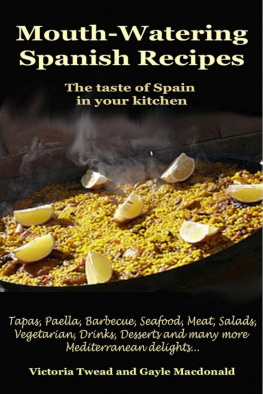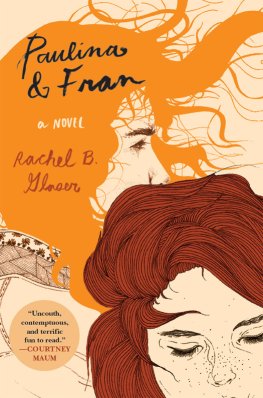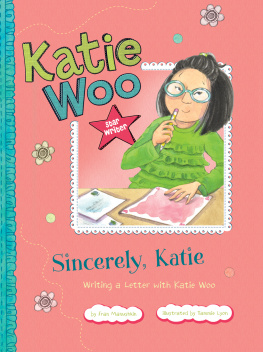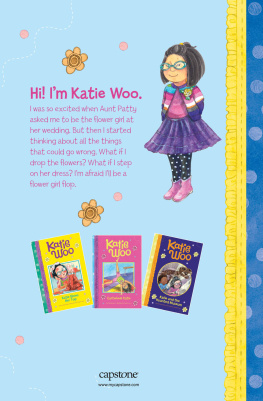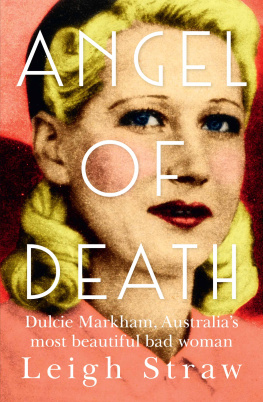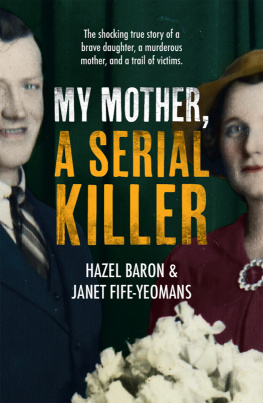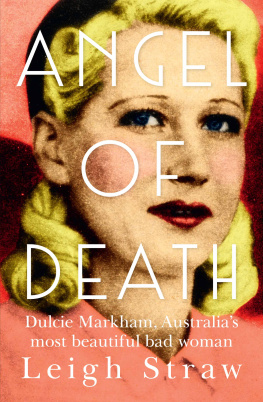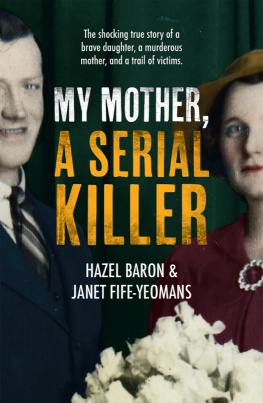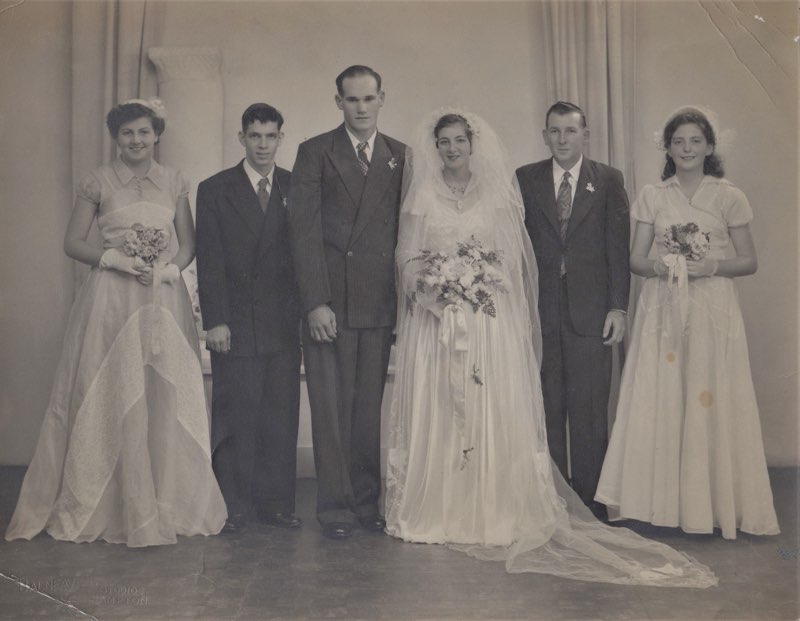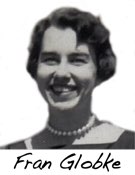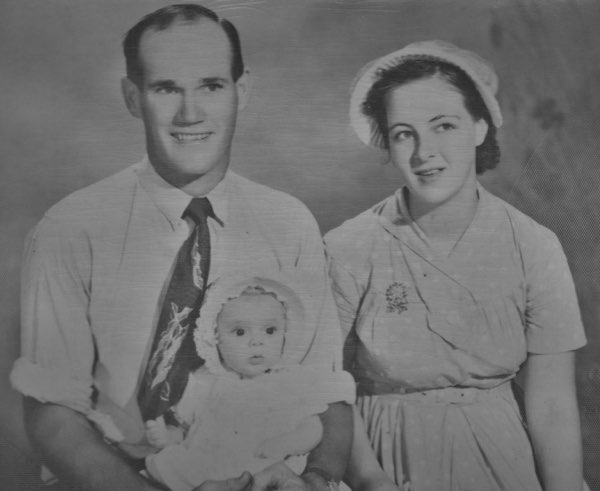The following email appeared in my inbox, completely out of the blue, on 5th November 2020:
Dear Victoria,
Having enjoyed reading about your various life experiences in the past, I was eager to read Two Old Fools Down Under. I was not disappointed. I enjoyed it thoroughly and see on Facebook you have also been traveling throughout Australia. This is one of the reasons I am writing to you now as Australia has played an important part of my life since the 1950s.
Through a United Nations People to People Program, I began a penpal friendship with a young married girl in Queensland where she and her husband lived with their baby girl on a farm in the outback. I lived in Detroit, Michigan, a large city and was expecting my first child. And so our friendship started and we shared our lives by mail through the 1960s and 70s until her untimely death in 1981.
[Len, Dulcie and baby Karen, 1956]
The diversity of our lives showed our entirely different ways of life in two vastly different locales and we wrote of our daily lives sharing not only good times but our adventures, problems, and tragedies and our innermost thoughts. Her life presented daily challenges more worthy of any stories or TV series my sons could watch. We looked forward to her letters and I kept the letters in a scrapbook.
I wanted somehow to pay a tribute to her life and accomplishments by telling the story that chronicles her life from young girl to admirable Australian woman. But my husband and I began a new business and I kept putting it off. Periodically I would look at the scrapbook and think, Someday, when I have time
Now I am 85 years old, with Parkinsons disease and my someday is, Im afraid, coming too late. The desire to share Dulcies life is still there. I re-read the letters and find they are most interesting to read, just as she wrote them. It is her story, I cant improve on that. But I dont know how to do this, and so I am writing to ask you if you could give me any advice as to what options I might have.
If you would like to read one of her letterspick a month and yearand I will send you a copy of one close to that time. I cannot choose which one is more definitive of her, they are all most worthy of reading. Her life on the farm or ranch always was so different from mine. She faced many challenges, loved her land, and never gave up in the most trying of circumstances.
Thank you for taking the time to read my email, and thank you for sharing your adventures with all of us readers. Whats next?
Fran Globke
Coldwater
MI USA
Joe! I yelled from my office. Listen to this!
My husband joined me and listened quietly as I read Frans email aloud.
Lovely email, he said at last. I would love to see a letter. Shall we ask Fran to send one?
I already have.
Excellent.
The sample letter arrived and took our breath away. We told Fran we would be honoured to take over the project and publish the letters in book form. Fran agreed and provided us with all the letters. Joe set to work transcribing them.
But we wondered how Dulcie, an Australian girl, had been matched with Fran. I emailed Fran and received this reply:
Hello Vicky,
In 1957 I heard about the People to People program, the brainchild of President Dwight D. Eisenhower. He hoped it would encourage international friendships through a variety of activities including an exchange of letters.
I was intrigued. At 21, I had just had my first child and had left my job to be a full time wife and mother. I loved my new career but missed the city life I had also had.
I worked in the business hub of Detroit on the 21st floor of the National Bank Building as an Underwriter in an insurance firm. Our offices overlooked Windsor, Ontario, Canada across the Detroit River.
It was an hours bus ride into the city from my home and an hour return in the evening. Downtown Detroit was at that time a thriving city with major shopping, theatres, museums, hotels, and led the automobile industry in the world.
When I heard of People to People it seemed like a wonderful way to contribute something to further understanding and peace, and I thought itd be great to learn about places I probably would never see.
I sent in my information and I was given Dulcies name in Australia. I also received information on another young woman in Tokyo, Japan. I excitedly answered both letters.
Unfortunately, my Japanese friend, who was a university student, lasted only two to three years because, after she graduated and began work in Tokyo, Asako found she couldnt keep up her English and so we decided to end our letters.
Her letters about her life, customs, and her experiences during the war were so different and I learned so much about Japanese culture. I treasure her letters also.
In Dulcies letters I found another way of life which was so completely different from mine, and our friendship grew as we learned not only about our differences in lifestyle but also how much the same were our mutual fundamental beliefs on which we based our lives.
I am so glad I sent that first letter.
Fran
Other than a few tiny corrections and minor grammatical changes, the letters are all as we received them from Fran.
Occasionally Joe and I thought an explanation was necessary to clear possible ambiguities. These are few and appear within square brackets [thus]. For international readers we provided the approximate equivalent metric values for imperial weights and measures. We also converted Fahrenheit temperatures to degrees Celsius.
I believe Dulcies letters are Australian historical treasures and I am eternally grateful to Fran and the Clarke family for allowing me to share them with the world.


